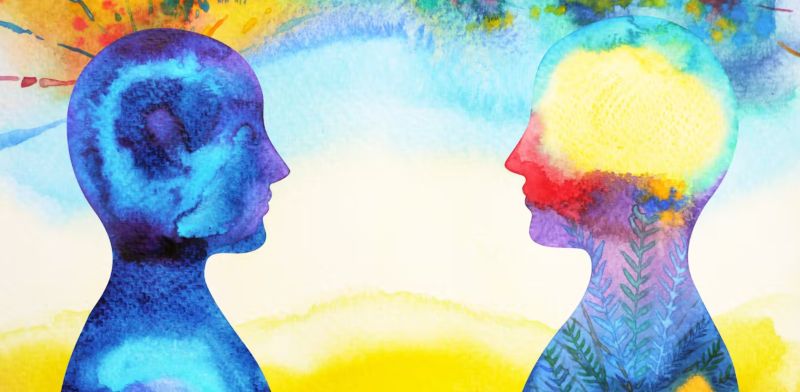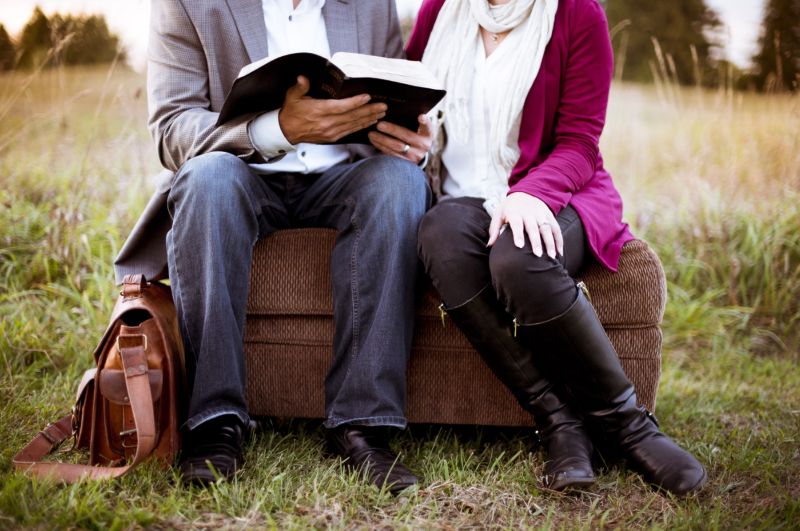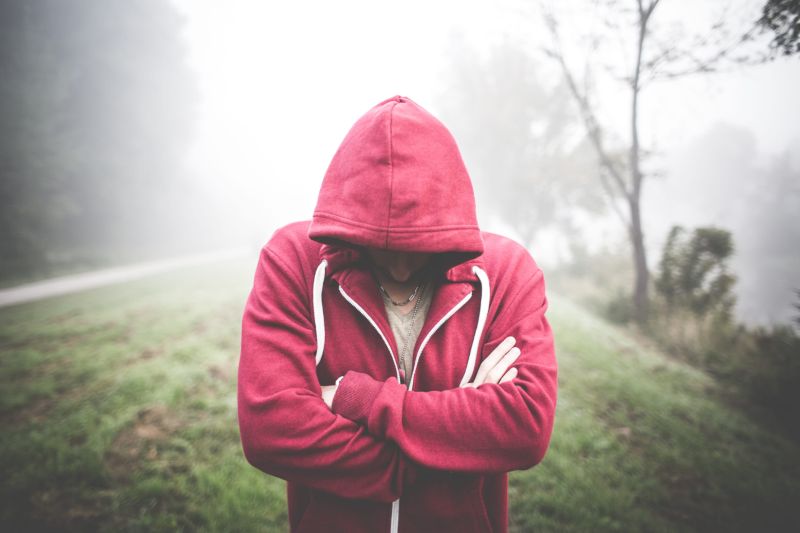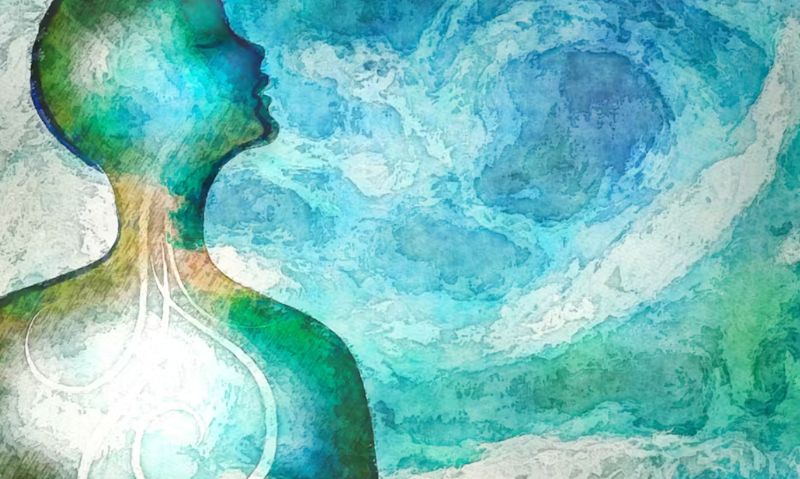
When his relationship ended, Thom James first withdrew from the world, then began to suffer from illnesses with no apparent physical cause. His experience reflects recent scientific findings revealing the serious health costs of loneliness in the modern world.

By Thom James
British writer based in Berlin
Introduction
After the unravelling of a relationship I found myself living alone in the south London flat I once shared. As my first relationship with another man, it was fundamental for my understanding of my identity. I hardly left the apartment’s four walls, the post-breakup emotional limbo making me withdraw from my family and friends. I didn’t want to talk, as I didn’t know what to say. I didn’t want to be around others, as I didn’t know how to be.
My only real social interaction during this time was in the form of my numerous trips to New Cross Medical Centre: I went from GP to GP with fatigue, inflamed tonsils and intermittent stomach pains. There were blood tests and physical inspections, which found no apparent root cause. After being told to drink more water and to exercise frequently, no more was said or done. That was that.
Loneliness is often thought of as a transient feeling, brought on by a change of circumstance: a geographical move, the ending of a romantic relationship, losing a close family member, and, like puberty, many think it can simply be outgrown. However, loneliness doesn’t always pass after a few weeks or months have elapsed: it can be a pervasive state. And we can all feel haunted by the spectre of loneliness.
Isolation and Premature Death
The BBC’s ‘Loneliness Experiment’, supported by Wellcome Collection, has recently found out that people within the 16 to 24 age bracket feel the most affected by loneliness, with 40 per cent of them agreeing that they “often or very often feel lonely”. It’s not hard to understand why: the progression from teenage years into adulthood is often fraught with mental, emotional, social and financial anxiety. Throw the unceasing noise of the internet and social media into the mix, and loneliness worms itself into our very beings like a virus; we inevitably become its hosts.
What’s particularly interesting – and daunting at the same time – is that loneliness doesn’t just have a profound effect on our mental and emotional states, but also our bodies, as our immune systems respond to it. Considering that my own past experiences of loneliness have resulted in negative physical health consequences, it’s something to which I can testify.
Medical research into loneliness is, thankfully, becoming more common over time. Julianne Holt-Lunstad has been spearheading research around loneliness’s impact on the body, and, consequently, morbidity and mortality. While researching her 2010 paper ‘Social Relationships and Mortality Risk’, Holt-Lunstad discovered that a lack of meaningful social interaction is comparable to risk factors such as smoking and alcohol consumption, and, even more worryingly, exceeds the risks posed by physical inactivity and obesity. Holt-Lunstad’s later study, in 2015, which involved 3.4 million participants, concluded that loneliness can lead to a 30 per cent increased risk of premature death.
Why LGBTQ+ can be Lonelier
Loneliness certainly doesn’t discriminate: it can affect anybody, no matter their age, gender, race, nationality or sexual orientation. Minorities, however, can consequently feel loneliness in a more visceral way due to their marginalised position in society. As a gay man, loneliness has, unfortunately, at various points in the past, fit like a nefarious glove – a comfortable, familiar but ultimately harmful state. And, as my first gay relationship ended, feelings of detachment from the people I once knew, from the public and from society (read heteronormative society) caused feelings of isolation to resurface.
Dr Michael Johnson, who works for the Lavender Health LGBTQ Resource Center in the United States, identified five different kinds of isolation that LGBTQ+ individuals face:
1. Social isolation (unable to openly talk about orientation or identity).
2. Emotional isolation (feeling disconnected from social networks).
3. Cognitive isolation (lack of access to information, resources and role models).
4. Concealment of identity (pressure to succumb to heteronormative expectations).
5. The realisation that one is ‘different’ from heteronormative society.
In retrospect, there’s no doubt that feelings of isolation contributed to my seemingly never-ending trips to New Cross Medical Centre – my body was buckling under the weight of loneliness. My experience was certainly not uncommon, however. The Institute of Medicine conducted a study in 2011, which revealed that lesbian, gay and bisexual adults are “at higher risk for mental and physical health disparities than heterosexuals”.
Finding like-Minded Friends
All the studies and statistics point to one question: how can loneliness be combated? It’s far easier said than done, but mustering the courage to meet others helps to quell the burden of loneliness. And, although research from University College London Urban Laboratory has uncovered that there’s been a 58 per cent decline in LGBTQ+ spaces in London since 2006, all is not yet lost: there are a number of DIY and grassroots LGBTQ+ initiatives across the United Kingdom that prioritise both community and physical wellbeing.
OutdoorLads is a group for gay, bisexual and trans men that has a focus on walking, hiking and cycling in the great outdoors. The lesbian woman’s answer to OutdoorLads are the Hiking Dykes and Dyke Hike groups, found in locations across the nation, including London, Exeter, Nottingham and Northumberland. For the artistic, there’s Charlotte Heather and Sophie Brown’s RITA MUNUS – a creative writing workshop that places emphasis on queerness, the body and chronic illness.
There are also a huge number of LGBTQ+ groups on MeetUp – perhaps one for every niche, taste or hobby. MeetUp has personal significance for me – it was the primary medium I used to meet others. Using an online portal to facilitate a real life meet-up made the whole undertaking far less daunting.
The above websites and groups came to my knowledge due to chance, word of mouth or sustained online research – that is to say, it took time for these opportunities to reveal themselves. Finding a relevant group, event or space might be a process that takes an undefined amount of time and effort, but it is our best bet for forging real, lasting connections with other people, and healing sickness in the process.
Suspending my feelings of worry and nervousness in order to establish new friendships and social circles helped pull me out of my post-breakup loneliness. And, whether it’s coincidence or not, my trips to New Cross Medical Centre lessened.
Originally published by Wellcome Collection, 12.20.2018, under the terms of Creative Commons Attribution 4.0 International license.





